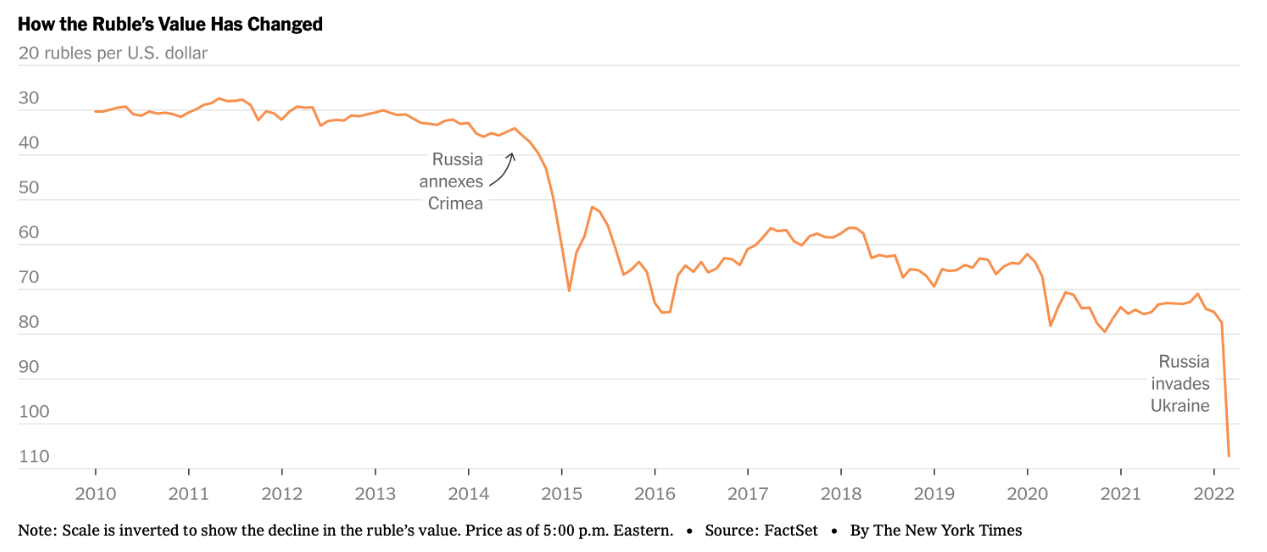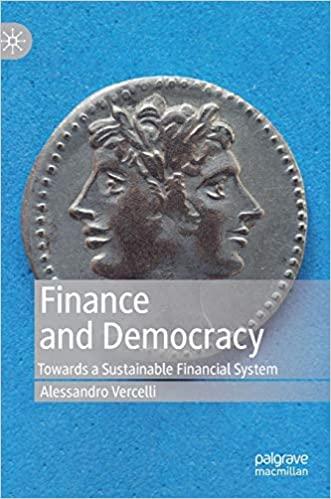Question
Note: Write your answer on a computer word processor program (e.g. MS Word, Open Office, Google Docs), and submit through email. Make sure to write
Note: Write your answer on a computer word processor program (e.g. MS Word, Open Office, Google Docs), and submit through email. Make sure to write ECO240 or FNC240 on your email subject.
Refer to the NYTimes article on Feb 28, 2022:
By targeting Russias central bank with sanctions, experts said, American and European leaders have taken aim at what could be one of President Vladimir V. Putins greatest weaknesses: the countrys currency. In Russian cities, anxious customers started lining up on Sunday in front of A.T.M.s, hoping to withdraw the money they had deposited in banks, fearful it would run out. The panic spread on Monday. Even before the sanctions were announced over the weekend, the ruble had weakened. On Monday it plunged further, with the value of a single ruble dropping to less than 1 cent at one point. As the value of any currency drops, more people will want to get rid of it by exchanging it for one that is not losing value and that, in turn, causes its value to drop further.
In Russia today, as the purchasing power of the ruble drops sharply, consumers who hold it are finding that they can buy less with their money. In real terms, they become poorer. Such economic instability could stoke popular unhappiness and even unrest.
 If people trust the currency, the country exists, said Michael S. Bernstam, a research fellow at the Hoover Institution at Stanford University. If they dont, then it goes up in smoke.
If people trust the currency, the country exists, said Michael S. Bernstam, a research fellow at the Hoover Institution at Stanford University. If they dont, then it goes up in smoke.
1. (50 points) Read the quotes from to the article: At the heart of the move to restrict the Bank of Russia are its foreign exchange reserves. These are the vast haul of convertible assets other nations currencies and gold that Russia has built up, financed in large part through the money it earns selling oil and gas to Europe and other energy importers. As Mr. Bernstam explained, the Bank of Russia has roughly $640 billion in foreign exchange reserves on paper or rather as electronic entries. But a big chunk of that money is not in Russian vaults or financial institutions. Rather, it is held by central and commercial banks in New York, London, Berlin, Paris, Tokyo and elsewhere around the world. Yet the central bank has just about $12 billion of cash in hand an astonishingly small amount, he said. As for the rest of Russias foreign exchange reserves, roughly $400 billion is invested in assets held outside the country. Another $84 billion is invested in Chinese bonds, and $139 billion is in gold. Question: Why the central bank of Russia has held currencies of other countries (foreign exchanges) and gold, instead of rubles, their own currency? Justify your answer by providing principles, theories and concepts from our lecture slides and the textbook (chapter 1).
How the Ruble's Value Has Changed How the Ruble's Value Has ChangedStep by Step Solution
There are 3 Steps involved in it
Step: 1

Get Instant Access to Expert-Tailored Solutions
See step-by-step solutions with expert insights and AI powered tools for academic success
Step: 2

Step: 3

Ace Your Homework with AI
Get the answers you need in no time with our AI-driven, step-by-step assistance
Get Started


